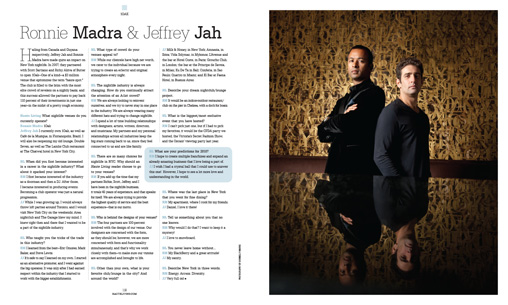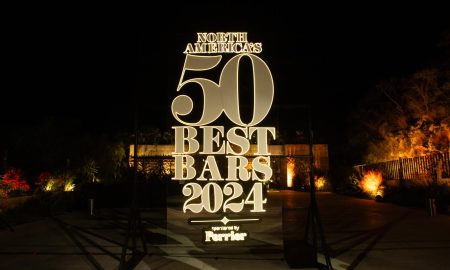Schrager has spent the better part of the past two decades demonstrating to the world that a luxurious hotel with its own identity is in fact possible while simultaneously characterizing himself as one of the most creative comeback kids of our times. Yet when we sat down with him in mid-January, evidence of the former nightlife king’s roots sprouted up throughout the conversation. But how could they not? Rose Bar, housed in his Gramercy Park Hotel, was an instant success upon opening its first bar tab in 2006, and has shown no signs of withering. Considering that the lifespan of a New York nightclub is about as long as the city’s proverbial minute, we set out to discover what Schrager defines as the secrets to success in the nightlife industry.
“My original nightclubs were quite large and the dance floor formed the heart of them, sort of in a tribal kind of way. It was an over-the-top, anything-goes type of mayhem,” he says. “While it was appropriate for those times, things are different now. Today it’s more cerebral and more conversational. Today there is less of the ‘packing them in’ mentality, with more refinement and sophistication….So we try to capture that [refinement] at the Rose Bar. We are not interested in the pseudo-celebrities that have sort of dominated the gossip columns. We never really wanted to be a part of that scene.”
Wait, I’m sorry, did we hear that correctly? In this day and age, when bad behavior from famous faces out late at night practically guarantees instant success, did we just hear a voice of reason speak out against the status quo of pop culture? Indeed. But perhaps even more shocking is the fact that this particular voice of reason could possibly be credited as the original instigator of celebrities behaving outrageously at New York nightclubs. (Remember the now-infamous night when Bianca Jagger rode her white horse into Studio 54?)
When asked about the evening that he refused to let Paris Hilton into Rose Bar, Schrager does not dodge the question or avoid ownership. “It was not a public relations kind of thing, and it wasn’t something I was just doing just for the sake of it,” he explains. “I think the kind of bar that we [have] here is perhaps not the kind of venue that she would enjoy.” His personal thoughts on such a shift in attitude have been well documented, and he has taken ownership publically many times for creating the monster that he is now disowning. “We just want to do something different at Rose Bar, something more sophisticated. It wasn’t so much of a rejection of her, as it was that I was trying to create a space that I would enjoy walking into.”
We won’t classify this transformation of attitude as growing up, but more as an evolution of the king of cool; what we all thought was scandalously hip in the age of disco today seems quite passé. So listen up club kids, paparazzi magnets, and nightlife impresarios: the age of sophistication is reigning supreme and taking over as the new cool.























